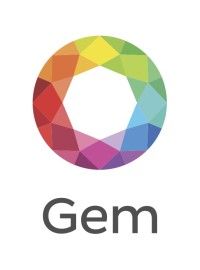Gem shows off first blockchain application for health claims
Gem is demonstrating the health claims blockchain on Monday 22 at Consensus 2017.

Los Angeles-based startup Gem has developed the first blockchain product for health claims management, which is being demonstrated at Consensus 2017, the main industry meet-up.
The Gem health claims solution takes aim at three of the toughest issues confronting the healthcare industry, said a release. The first is the lack of real-time transparency into health claims transactions involving providers and payers; then there is the amount of time it takes for providers to get paid for their service. Thirdly is the slow rate of provider reimbursements because of the time it takes to generate and deliver the patient's Explanation of Benefits.
According to the Centers for Medicare and Medicaid Services (CMS), 26% of all claims processed are rejected; and 40% of those denials are never re-billed. In fact, medical providers can increase their total collections on average by as much as 7%, CMS says, with more a more efficient claims management process.
Micah Winkelspecht, Gem CEO and founder, said: "Current API solutions on the market don't solve the problem completely, and they create new problems as well. There's no complete record of the truth. They're difficult to scale and they create a spaghetti mess of connections and massive reconciliation costs."
Aggregation models create new problems as well because these trigger gateway fees and the competition between vendors results in multiple data silos. "It creates major privacy issues," said Winkelspecht. "Any time you have centralisation, it creates security risks."
Gem's platform, GemOS, builds a blockchain-based ecosystem for exchanging enterprise data peer-to-peer, both within and across organisations, while creating unique global identifiers for data assets in order to track them between systems. These identifiers link together and register the locations of all the data belonging to a person or asset on a blockchain, along with the necessary consents and sharing policies, said the release.
Winkelspecht said: "The result is one identifier, one story, one timeline. Patients, providers, and payers, all can see the patient's health and claims data in real time, creating a continuum for care and payments and as a result, transparency and speed in reconciling claims and reimbursing patients and providers what they are owed, faster and more accurately."
According to a 2017 Becker's Hospital Review report, the benchmark for hospital executives for accounts receivable is 48.4 days. Gem's platform can help settle a claim in less than five minutes. It also reduces denial errors by creating a global paper trail and data environment where all parties have complete visibility through the claims lifecycle. It's important to note that the actual data stays where it is and is never stored on the blockchain, making the process secure, added Winkelspecht.
"Health plans are able to subscribe to new claims created and hashed on the network, which fetches a pointer to the claims data living in the provider's data store. Finally, providers can automate delivery of the patients' Explanations of Benefits based on validation of pre-configured rules and on approval of claims triggered by GemOS and the underlying blockchain network," he said.
© Copyright IBTimes 2025. All rights reserved.






















